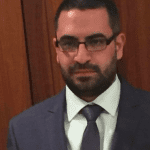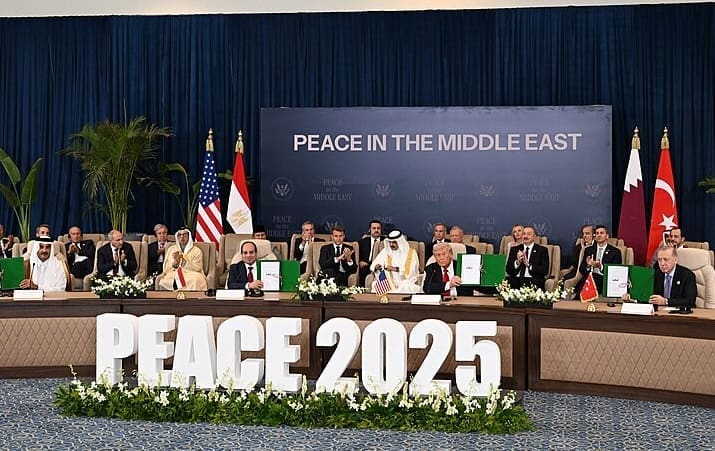- المواضيع
-
المواضيع
طالعوا تحليلاتنا بخصوص المجتمع المدني وسُبله في رسم ملامح المشهد الثقافي والسياسي والسياساتي.
طالعوا استشرافاتنا بخصوص تغيرات المشهد السياسي وتداعياتها على فلسطين
استزيدوا معرفةً بالسياسات والممارسات التي تحدد شكل الاقتصاد الفلسطيني
تعرَّفوا أكثر على الأوضاع الفريدة التي يعيشها اللاجئون الفلسطينيون في الشرق الأوسط
-
- التحليلات
-
التحليلات
تحليلات متعمقة للسياسات الحالية أو المتوقعة التي تؤثر في إمكانيات التحرير الفلسطيني.
رؤى ووجهات نظر حول المسائل الاجتماعية والسياسية والاقتصادية المتعلقة بفلسطين والفلسطينيين حول العالم.
تحليلات موجزة لسياسات محددة وخلفياتها وآثارها.
تعقيبات تضم رؤى متنوعة من محللين متعددين.
تجميعات لأعمال سابقة أنجزتها الشبكة حول موضوع محدد.
مشاريع مطوَّلة ومخصصة تسعى إلى الإجابة عن أسئلة بحثية تقع خارج نطاق تحليلاتنا المعتادة.
مبادرة بحثية معنية بالسياسات أطلقتها الشبكة: شبكة السياسات الفلسطينية.
سلسلة ندوات شهرية عبر الإنترنت تجمع خبراء فلسطينيين.
متميز
في 4 تشرين الثاني/نوفمبر 2025، طرحت الحكومة البريطانية تعديلًا على قانون مكافحة الجريمة وتنظيم العمل الشرطي بهدف تقييد الحق في الاحتجاج والتظاهر تحت ذريعة «التعطيل التراكمي». وقد أصبح مشروع القانون المعدَّل الآن أمام لجنة مجلس اللوردات، حيث يخضع للمراجعة تمهيدًا لإقراره بصورة نهائية. ويعكس هذا التعديل تحوّلًا جذريًّا في نهج الدولة في إدارة الاحتجاجات العامة. ورغم تقديم مشروع القانون بوصفه إجراءً محايدًا لحفظ الأمن العام، فإنه يأتي في سياق موجة الاحتجاجات والتظاهرات المحلية دعمًا لحقوق الفلسطينيين، ويتضمن تعديلات قانونية جديدة تهدد الحريات الديمقراطية الراسخة. تتناول هذه الحلقة النقاشية الدوافعَ السياسية وراء مشروع القانون، وتُحلّل بنيته القانونية، وانعكاساته الأوسع على الحركات الاجتماعية والحريات المدنية في المملكة المتحدة. وتُظهر أن هذه التعديلات تعكس توجّهًا سياسيًا-قانونيًا قد يفضي إلى تقليص حيّز المعارضة في المملكة المتحدة. وفي حين يستهدف هذا التقييدُ بصورة مباشرة التضامنَ مع فلسطين ضمن حملة أوسع للتضييق على حرية التجمّع، ترى المشارِكات في هذه الحلقة النقاشية أن تداعياته المحتملة لن تقتصر على ذلك، بل ستمتد لتطال التنظيمات العمالية، وقضايا العدالة العِرقية، والحراك المناخي، ومجالات المشاركة الديمقراطية الأوسع.

 "سينتهي بنا المطاف جميعًا في الأردن"، قالها شابٌ من قرية الجفتلك الفلسطينية الواقعة في غور الأردن، عاكسًا حالةَ اليأس المتزايدة في أوساط الفلسطينيين في الضفة الغربية وريفها، حيث تتسارع وتيرة التوسع الاستيطاني الإسرائيلي. ويتجلى ذلك تحديدًا في غور الأردن، السلة الزراعية الواقعة على الحدود الشرقية للضفة الغربية مع الأردن. كانت قرية الجفتلك تُلقَّب عند الفلسطينيين في السابق بعروس الأغوار، ولكنها باتت اليوم مثالًا على التوسع الاستيطاني الإسرائيلي المتسارع تحت رعاية دولة الاحتلال الإسرائيلية، وتحولت من مجتمع زراعي مزدهر إلى منطقة محاصرة تخضع لضغوط تهجير مستمرة. منذ بدء العدوان الإسرائيلي الإبادي على غزة في تشرين الأول/أكتوبر 2023، تحوّلت مصادرة الأراضي في الضفة الغربية من زحفٍ استيطاني بطيء إلى حملة نهبٍ متسارعة، مدعومة عسكريًا. يُظهر هذا التعقيب كيف تحولت سياسة مصادرة الأراضي التي ينتهجها النظام الإسرائيلي في الضفة الغربية، والتي كانت تُبرَّر سابقَا بأوامر مصادرة بيروقراطية قانونية، إلى سيطرةً مباشرة على الأرض من جانب المستوطنين. لا يشير هذا التحول إلى تغيرٍ في الأهداف بقدر ما يعكس تصعيدًا في آليات التوسع الاستيطاني القائمة، بما يدل على تنامي قوة حركة المستوطنين وتأثيرها في السياسة الإسرائيلية.
"سينتهي بنا المطاف جميعًا في الأردن"، قالها شابٌ من قرية الجفتلك الفلسطينية الواقعة في غور الأردن، عاكسًا حالةَ اليأس المتزايدة في أوساط الفلسطينيين في الضفة الغربية وريفها، حيث تتسارع وتيرة التوسع الاستيطاني الإسرائيلي. ويتجلى ذلك تحديدًا في غور الأردن، السلة الزراعية الواقعة على الحدود الشرقية للضفة الغربية مع الأردن. كانت قرية الجفتلك تُلقَّب عند الفلسطينيين في السابق بعروس الأغوار، ولكنها باتت اليوم مثالًا على التوسع الاستيطاني الإسرائيلي المتسارع تحت رعاية دولة الاحتلال الإسرائيلية، وتحولت من مجتمع زراعي مزدهر إلى منطقة محاصرة تخضع لضغوط تهجير مستمرة. منذ بدء العدوان الإسرائيلي الإبادي على غزة في تشرين الأول/أكتوبر 2023، تحوّلت مصادرة الأراضي في الضفة الغربية من زحفٍ استيطاني بطيء إلى حملة نهبٍ متسارعة، مدعومة عسكريًا. يُظهر هذا التعقيب كيف تحولت سياسة مصادرة الأراضي التي ينتهجها النظام الإسرائيلي في الضفة الغربية، والتي كانت تُبرَّر سابقَا بأوامر مصادرة بيروقراطية قانونية، إلى سيطرةً مباشرة على الأرض من جانب المستوطنين. لا يشير هذا التحول إلى تغيرٍ في الأهداف بقدر ما يعكس تصعيدًا في آليات التوسع الاستيطاني القائمة، بما يدل على تنامي قوة حركة المستوطنين وتأثيرها في السياسة الإسرائيلية. فتحي نمر· 03 فبراير 2026في مختبر السياسات هذا، ينضم إلينا الدكتور حيدر عيد والأستاذ زيد الشعيبي مع الميسّر فتحي نمر لمناقشة دور "مجلس السلام" الأميركي والسلطات واللجان المنبثقة عنه.
فتحي نمر· 03 فبراير 2026في مختبر السياسات هذا، ينضم إلينا الدكتور حيدر عيد والأستاذ زيد الشعيبي مع الميسّر فتحي نمر لمناقشة دور "مجلس السلام" الأميركي والسلطات واللجان المنبثقة عنه.

-
- الموارد
- الإعلام والتواصل
- أعضاء الشبكة









